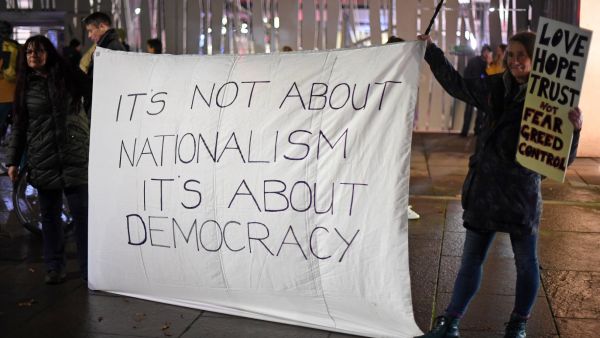An estimated 3.5 million Britons living overseas will from Tuesday be eligible to vote in UK general elections, in one of the biggest increases in the country’s electoral franchise in a century.
The expansion in the electorate follows a change in the law, approved by parliament in 2022, scrapping a previous curb on UK citizens voting if they had lived overseas for over 15 years.
The new law, which also applies to local elections, is the most significant change to the voter rolls since a 1928 law granted women equal voting rights, and a 1969 move to lower the voting age to 18 from 212. It brings the UK in line with other major democracies, such as the US, France, Italy and Canada, which allow lifelong voting rights for their citizens abroad.
Britons worldwide will now be able to register to vote online, regardless of how long they have been overseas. Under UK election law, once registered they will also be permitted to donate to political parties and campaigners. They will need to provide details of the address and time they were last registered to vote or living in Britain, and cast their ballots by post or by using a proxy in the UK.
Around 233,000 overseas voters were registered for the last election in December 2019, a significant Brexit-attributed bump on the numbers seen in previous contests. The government estimates Tuesday’s change could enfranchise around 3.5 million people – nearly treble the 1.3 million votes that was the winning margin in the 2016 referendum on European Union membership. It is also greater than the difference in the vote totals for Britain’s two main parties – the Conservatives and Labor – in five of the last six general elections.
However, it remains unclear how many of the newly eligible 3.5 million UK citizens living overseas will successfully register to vote. The Electoral Commission is launching a publicity campaign and working with partner organizations to raise awareness of the rule change. “We know there are eligible voters in every corner of the world so we’re calling on those with friends and family abroad to help spread the news,” communications director Craig Westwood said.
The change in the law is the result of a long campaign by British expatriates, especially the late Harry Shindler, who challenged the 15-year limit on voting rights in the high court in 2016 and in the European court of justice in 2018. Shindler, a veteran of the second world war who lived in Italy, died in 2023 at the age of 100, shortly after seeing the legislation pass through parliament. He never gave up hope his campaign would finally bear fruit and in March 2022 declared his battle was “nearly over” when legislation was finally drafted.
The concept of a lifelong vote is not universally supported in parliament. Some critics have questioned how it could be right that someone who had not lived in the UK for decades could have a say in policies that did not directly affect them. However, supporters of the change argue that Britons abroad are affected by many of the same electoral concerns as those living in the UK, such as health and care for the elderly, education policy for overseas children sent to school or university in the UK and the immigration policy which impinges on non-British spouses.
The end of the 15-year rule means millions more could be enfranchised in time for the next general election, the date of which has yet to be decided by the prime minister, Rishi Sunak. The UK is due to hold a general election by May 2024, unless the government calls one earlier or parliament votes for an extension.
By Salam Bustanji







